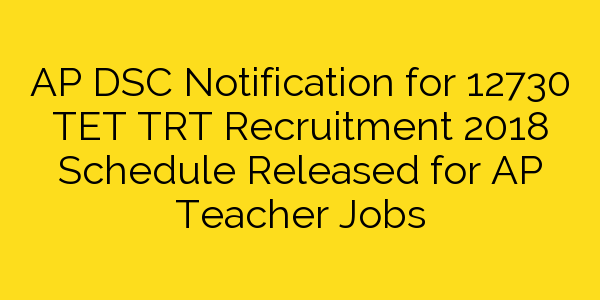Uttarakhand G.K : उत्तराखंड के मनोनीत राज्यपाल क्रमबद्ध सूची
By Pooja | General knowledge | Jul 21, 2020

आज educationmasters आपके लिए लाए हैं, उत्तराखंड के मनोनीत राज्यपालों की क्रमबद्ध सूची। परन्तु उससे पहले राज्यपाल के बारे में कुछ जान लेते है जो की उत्तराखंड की प्रतियोगी परीक्षाओं मे यह प्रश्न के तौर पर अधिकतर पूछ लिया जाता है। आशा है हमारे इस लेख के माध्यम से आपको प्रतियोगी परीक्षाओं मे सफलता हासिल हो सकेगी।
राज्यपाल के बारे में:
राज्यपाल, राज्य का संवैधानिक प्रमुख होता है। वह मंत्रिपरिषद की सलाह से कार्य करता है परंतु उसकी संवैधानिक स्थिति मंत्रिपरिषद की तुलना में बहुत सुरक्षित है।
राज्यपाल की नियुक्ति:
संविधान के अनुच्छेद 155 के अनुसार- राज्यपाल की नियुक्ति राष्ट्रपति के द्वारा प्रत्यक्ष रूप से की जाएगी, किन्तु वास्तव में राज्यपाल की नियुक्ति राष्ट्रपति के द्वारा केंद्रीय मंत्रिमंडल की सिफ़ारिश पर की जाती है।
7 वे संशोधन 1956 के तहत एक राज्यपाल एक से अधिक राज्यो के लिए भी नियुक्त किया जा सकता है।
राज्यपाल की नियुक्ति के सम्बन्ध में निम्न दो प्रकार की प्रथाएँ बन गयी थीं-
1. किसी व्यक्ति को उस राज्य का राज्यपाल नहीं नियुक्त किया जाएगा, जिसका वह निवासी है।
2. राज्यपाल की नियुक्ति से पहले सम्बन्धित राज्य के मुख्यमंत्री से विचार विमर्श किया जाएगा।
यह प्रथा 1950 से 1967 तक अपनायी गयी, लेकिन 1967 के चुनावों में जब कुछ राज्यों में गैर कांग्रेसी सरकारों का गठन हुआ, तब दूसरी प्रथा को समाप्त कर दिया गया और मुख्यमंत्री से विचार विमर्श किए बिना राज्यपाल की नियुक्ति की जाने लगी |
राज्यपाल की योग्यता :
अनुच्छेद 157 के अनुसार राज्यपाल पद पर नियुक्त किये जाने वाले व्यक्ति में निम्नलिखित योग्यताओं का होना अनिवार्य है–
1. वह भारत का नागरिक हो,
2. वह 35 वर्ष की आयु पूरी कर चुका हो,
3. वह राज्य सरकार या केन्द्र सरकार या इन राज्यों के नियंत्रण के अधीन किसी सार्वजनिक उपक्रम में लाभ के पद पर न हो,
4. वह राज्य विधानसभा का सदस्य चुने जाने के योग्य हो।
5. वह पागल या दिवालिया घोषित न किया जा चुका हो।
कुछ संवैधानिक प्रावधान निम्नलिखित है :
अनु 166[2] के अंर्तगत यदि कोई प्रश्न उठता है कि राज्यपाल की शक्ति विवेकाधीन है या नहीं तो राज्यपाल का निर्णय अंतिम माना जाता है
अनु 166[3] राज्यपाल इन शक्तियों का प्रयोग उन नियमों के निर्माण हेतु कर सकता है जिनसे राज्यकार्यों को सुगमता पूर्वक संचालन हो साथ ही वह मंत्रियों में कार्य विभाजन भी कर सकता है
अनु 200 के अधीन राज्यपाल अपनी विवेक शक्ति का प्रयोग राज्य विधायिका द्वारा पारित बिल को राष्ट्रपति की स्वीकृति हेतु सुरक्षित रख सकने में कर सकता है
अनु 356 के अधीन राज्यपाल राष्ट्रपति को राज के प्रशासन को अधिग्रहित करने हेतु निमंत्रण दे सकता है यदि यह संविधान के प्रावधानों के अनुरूप नहीं चल सकता हो
राज्यपाल की कार्य अवधि:
राज्यपाल राज्य में केन्द्र का प्रतिनिधि होता है तथा राष्ट्रपति के प्रसादपर्यंत पद पर बना रहता है। वह कभी भी पद से हटाया जा सकता है। यद्यपि राज्यपाल की कार्य अवधि उसके पद ग्रहण की तिथि से पाँच वर्ष तक होती है, लेकिन इस पाँच वर्ष की अवधि के समापन के बाद वह तब तक अपने पद पर बना रहता है, जब तक उसका उत्तराधिकारी पद नहीं ग्रहण कर लेता। जब राज्यपाल पाँच वर्ष की अवधि की समाप्ति के बाद पद पर रहता है, तब वह प्रतिदिन के वेतन के आधार पर पद पर बना रहता है। राज्य पाल विश्विविद्यालयो का कुलपति भी होता है |
यहां उत्तराखंड के गवर्नर जनरल की सूची दी गई है:
|
क्र.संख्या |
नाम |
पद ग्रहण |
पद छोड़ा |
|
01 |
लेफ्टिनेंट जनरल ( सेवानिवृत ) गुरमीत सिंह |
9 नवम्बर 2021 |
वर्तमान में कार्यरत |
|
02 |
बेबी रानी मौर्य |
26 अगस्त 2018 |
8 सितम्बर 2021 |
|
03 |
कृष्ण कांत पाल |
8 जनवरी 2014 |
25 अगस्त 2018 |
|
04 |
अजीज कुरैशी |
15 मई 2012 |
8 जनवरी 2014 |
|
05 |
मार्गरेट अल्वा |
06 अगस्त 2009 |
8 जनवरी 2014 |
|
06 |
बनवारी लाल जोशी |
29 अक्टूबर 2007 |
14 मई 2012 |
|
07 |
सुदर्शन अग्रवाल |
8 जनवरी 2003 |
28 अक्टूबर 2007 |
|
08 |
सुरजीत सिंह बरनाला |
9 नवंबर 2000 |
7 जनवरी 2003 |
Read Also: Uttarakhand general Knowledge question and answer in hindi
Today educationmasters brings to you the ranked list of nominated governors of Uttarakhand. But before that let us know something about the Governor which is mostly asked in the form of questions in the competitive examinations of Uttarakhand. We hope that through this article you will be able to achieve success in competitive examinations.
About Governor:
The governor is the constitutional head of the state. He works on the advice of the Council of Ministers but his constitutional position is much safer than that of the Council of Ministers.
Appointment of Governor:
According to Article 155 of the Constitution – The Governor will be appointed directly by the President, but in reality, the Governor is appointed by the President on the recommendation of the Union Cabinet.
Under the 7th Amendment of 1956, a Governor can be appointed for more than one state.
In relation to the appointment of the Governor, the following two types of practices were formed-
1. No person shall be appointed as the Governor of the State of which he is a resident.
2. Before the appointment of the Governor, the Chief Minister of the concerned state will be consulted.
This practice was adopted from 1950 to 1967, but in the elections of 1967, when non-Congress governments were formed in some states, the second practice was abolished and the Governor was appointed without consulting the Chief Minister.
Qualification of the Governor:
According to Article 157, it is mandatory for the person appointed to the post of Governor to have the following qualifications:
1. He is a citizen of India,
2. He has completed 35 years of age,
3. He should not hold any office of profit in the State Government or the Central Government or any public undertaking under the control of these States,
4. He should be eligible to be elected a member of the State Legislative Assembly.
5. He has not been declared lunatic or insolvent.
Some constitutional provisions are as follows:
Under Article 166[2], if any question arises whether the power of the Governor is discretionary or not, then the decision of the Governor is considered final.
Under Article 166 [3] The Governor can use these powers to make rules by which state affairs can be conducted smoothly and he can also divide work among the ministers.
Under Article 200, the Governor can use his discretionary power to reserve the bill passed by the state legislature for the approval of the President.
Under Article 356, the Governor can invite the President to take over the administration of the State if it cannot be carried on in accordance with the provisions of the Constitution.
Tenure of Governor:
The Governor is the representative of the Center in the State and remains in office during the pleasure of the President. He can be removed at any time. Although the term of office of the Governor is five years from the date of his assumption of office, after the expiry of this five-year period, he continues in office till his successor enters the office. When the Governor ceases to hold office after the expiry of the term of five years, he continues in office on a daily wage basis. Rajya Pal is also the Vice-Chancellor of the Universities.
Here is a list of Governer General Uttarakhand:
|
S.no |
Name |
Designation |
Post till |
|
1 |
Lieutenant General Gurmit Singh (Retd.) |
9 November 2021 |
Present |
|
2 |
Baby Rani Maurya |
26 August 2018 |
8 September 2021 |
|
3 |
Krishna Kant Paul |
8 January 2014 |
25 August 2018 |
|
4 |
Aziz Qureshi |
15 May 2012 |
7 January 2014 |
|
5 |
Margaret Alva |
06 August 2009 |
14 May 2012 |
|
6 |
Banwari Lal Joshi |
29 October 2007 |
14 August 2009 |
|
7 |
Shri Sudarshan Agarwal |
8 January 2003 |
28 October 2007 |
8
|
Surjeet Singh Barnala |
9 November 2000 |
7 January 2003 |
Other Important Uttarakhand Gk:
Read Also: Uttarakhand general Knowledge question and answer in hindi
Read Also: Uttarakhand general Knowledge question and answer in hindi
Read Also: Uttarakhand general knowlege question and answer in hindi
Read Also: Uttarakhand general knowlege question and answer in hindi
सरकारी नौकरियों, जीके अपडेट्स और करेंट अफेयर्स की ताज़ा जानकारी सबसे पहले पाने के लिए:
-
हमारे WhatsApp चैनल को फॉलो करें:
https://whatsapp.com/channel/0029Vb6sjZz0wajwDXcd5B0U -
हमारे Telegram चैनल को फॉलो करें:
https://t.me/educationmastersin -
हमारे Facebook Page को फॉलो करें:
https://www.facebook.com/educationmastersindia






.png)
.jpg)
.jpg)



